Herb Business Ideas: Turn Your Passion for Herbs into Profit
Starting an herbal business can be an exciting and fulfilling journey for those passionate about natural remedies or culinary herbs! Excellent herb business ideas include selling herbal teas, herbal remedies, skincare or bath and body products, culinary spice blends, or selling raw herbs to florists, at farmers markets, to chefs, or in a CSA. You can also make money via education, selling your knowledge on growing or using herbs.

With more people seeking alternative medicine and wellness solutions, the demand for herbal products has increased significantly in recent years, with younger people being more likely to believe in the power of alternative medicines. From teas and tinctures to salves and supplements, there are countless opportunities to create unique and effective herbal remedies that can help people improve their health and well-being. Not to mention, the increased desire for quality ingredients at farm-to-table restaurants and at-home cooking! Finding the right niche market can be a great way to generate income without having to have years of experience!
I hope these ideas below compel you to start a successful herbal business from your backyard bounty! You don’t have to be a certified herbalist or professional chef to start making money from your passion right now!
I am so intrigued my the idea of becoming an herbal entrepreneur as I move later this year and will have more space to garden! Are you also feeling itchy with that entrepreneurial spirit? Ready to start your own herbal products business? Let’s do it!
Herb Business Ideas

Selling Herbal Teas
Herbal teas are typically brewed from a combination of dried flowers, fruits, spices, herbs and other plant parts. They can be crafted to support specific body systems or health issues such as respiratory support or sleep aid. Some people may also choose these blends for flavor.
Selling teas could be done on any scale – either locally or by building an online store – depending on your resources and preferences. Regardless of endeavoring upon such a venture it’s certain that customers would appreciate having access to expertly crafted herbal mixtures!
Looking for Herbal Tea Suggestions? Check out my Herbal Tea Series with tons of ideas!
Pros of selling herbal teas:
- Health Benefits: Herbal teas are known for their medicinal properties and are often consumed for their health benefits. As a seller, you can market your teas as a natural remedy for various ailments such as digestive issues, stress, anxiety, and sleep disorders.
- Profitable: Herbal teas can be sold at a higher price than regular tea bags, providing a better profit margin. Additionally, they have a longer shelf life than fresh herbs and can be stored for a long time, allowing you to stock up and sell in bulk.
- Market Demand: There is a growing market for herbal teas, driven by consumers’ interest in natural and organic products. With an increasing focus on health and wellness, herbal teas are becoming increasingly popular, providing a great opportunity for sellers.
Cons of selling herbal teas:
- Regulation: The sale of herbal teas is regulated by various bodies, such as the FDA and USDA, making it necessary to comply with various rules and regulations. As a seller, you may need to obtain licenses, permits, and certifications to sell herbal teas legally (especially if you want to be certified organic).
- Quality Control: Ensuring the quality of your herbal teas is crucial, as it can impact your reputation as a seller. It can be challenging to maintain consistency in the quality of herbal teas due to variations in sourcing, storage, and processing.
- Competition: There is an increasing number of sellers offering herbal teas, making the market highly competitive. It can be challenging to differentiate yourself from other sellers and establish a loyal customer base.
How to Get Started with Your Herbal Tea Business:
- Research and experiment with herbs: Research different herbs and their health benefits, and experiment with different combinations to find what works best. Consider offering a variety of blends to appeal to different customers, even if they aren’t your personal favorite flavors!
- Source high-quality ingredients: Choose natural and organic ingredients to ensure that your teas are of high quality. Consider sourcing ingredients from local herb farms or online herb suppliers (or grow them yourself!).
- Develop your product line: Determine what types of teas you want to offer, such as loose-leaf teas, tea bags, or pre-packaged tea blends. Consider offering additional products such as tea accessories or gift sets.
- Determine your target market: Decide who you want to sell your teas to. Your target market may be people interested in natural medicine, people with specific health concerns, or people looking for a relaxing and soothing beverage.
- Establish a brand: Develop a brand that reflects your values and appeals to your target market. Choose a name, logo, and packaging that stands out and reflects the natural and herbal nature of your products.
- Determine your pricing: Factor in the cost of materials, time, and labor to determine your pricing. Research what other similar products are being sold for in your area and price your products accordingly.
- Develop marketing strategies: Use social media and online marketplaces to promote your products. Attend local markets or fairs to showcase your products and meet potential customers. Consider collaborating with local health stores or wellness centers to sell your products.
- Comply with regulations: Make sure you comply with all regulations for selling herbal teas in your area. This may include registering your business, obtaining necessary permits, and complying with labeling requirements.
Selling herbal teas can be a great way to provide people with a natural and relaxing beverage while also promoting the health benefits of herbs. With careful planning, high-quality ingredients, and effective marketing, you can establish a successful business that provides customers with natural, value-added tea products!
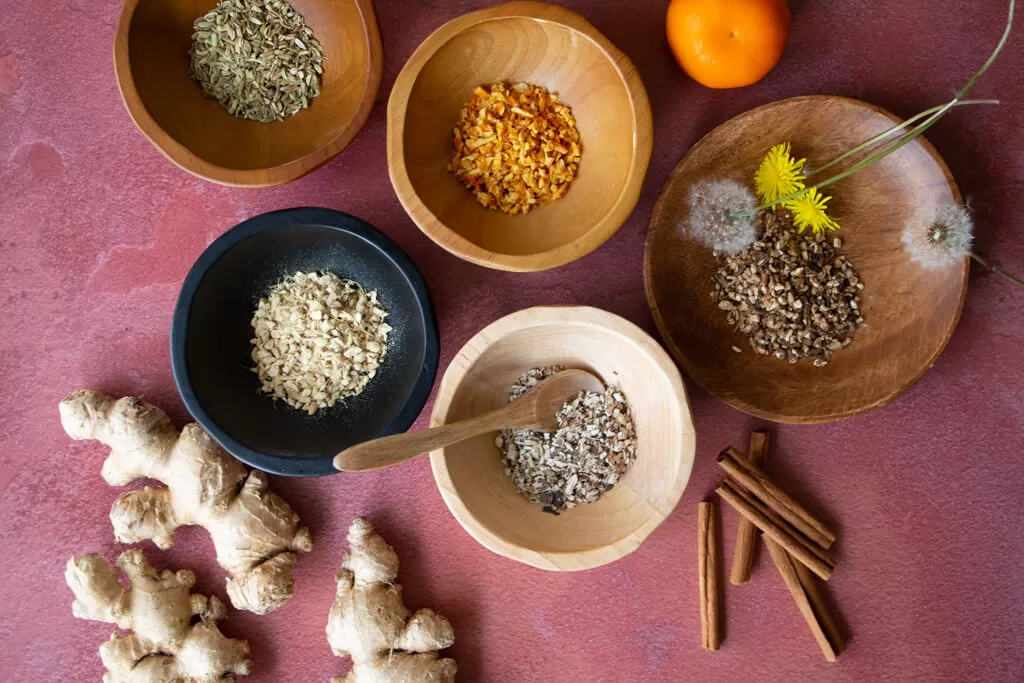
Herbal Remedies
Herbal remedies are an increasingly popular form of medicine as many people are going back to their roots and taking their health into their own hands.
Utilizing the health benefits of herbs, you can make tinctures, elixirs, salves, and herbal supplements and preparations to sell. Many people don’t have the time or even the knowledge to make their own remedies, so it can be beneficial to look into creating your own line of herbal medicine tailored specifically to target certain ailments. You can make herbal bitters that support digestion, alcohol-free tinctures and other options as well, depending on your interest and needs.
Pros of selling your own herbal remedies:
- Personalization: By making your own herbal remedies, you have the ability to customize your products to suit the needs of your customers. This allows you to create unique blends that cater to specific health concerns.
- Control over ingredients: When making your own herbal remedies, you have complete control over the ingredients used. This allows you to ensure that only high-quality, natural herbs are used in your products.
- Profitable: Selling your own herbal remedies can be a profitable business, as natural and organic products are in high demand. Additionally, the cost of ingredients is relatively low, allowing for a good profit margin. You are exchanging your vast knowledge of herbs for money!
Cons of selling your own herbal remedies:
- Regulation: The sale of herbal remedies is regulated by various bodies, such as the FDA and USDA, making it necessary to comply with various rules and regulations. As a seller, you may need to obtain licenses, permits, and certifications to sell herbal remedies legally. You need to be very careful about making medical claims!
- Quality Control: Ensuring the quality of your herbal remedies is crucial, as it can impact your reputation as a seller. It can be challenging to maintain consistency in the quality of herbal remedies due to variations in sourcing, storage, and processing.
- Safety Concerns: The use of herbs and natural remedies can be dangerous if not used correctly. As a seller, you have a responsibility to ensure that your customers are aware of any potential side effects or interactions with other medications. It is important to provide clear instructions and warnings to ensure the safety of your customers. This means you need a lot of training and knowledge on the herbals preparations you sell.
How to Get Started with Your Herbal Remedy Business:
- Develop your product line: Research different herbal remedies and experiment with different herbal combinations to find what works best. Common herbal remedies include teas, tinctures, salves, and capsules.
- Source high-quality ingredients: Choose natural and organic ingredients to ensure that your remedies are of high quality. Consider sourcing ingredients from local herb farms or online herb suppliers (or grow your own!).
- Determine your target market: Decide who you want to sell your remedies to. Your target market may be people interested in natural medicine, people with specific health concerns, or people looking for alternative remedies to traditional medicine.
- Establish a brand: Develop a brand that reflects your values and appeals to your target market. Choose a name, logo, and packaging that stands out and reflects the natural and herbal nature of your products.
- Determine your pricing: Factor in the cost of materials, time, and labor to determine your pricing. Research what other similar products are being sold for in your area and price your products accordingly. Don’t undersell your knowledge and training.
- Develop marketing strategies: Use social media and online marketplaces to promote your products. Attend local markets or fairs to showcase your products and meet potential customers. Consider collaborating with local health stores or wellness centers to sell your products.
- Comply with regulations: Make sure you comply with all regulations for selling herbal remedies in your area. This may include registering your business, obtaining necessary permits, and complying with labeling requirements.
Selling herbal remedies can be a great way to provide people with natural and alternative remedies to traditional medicine. With careful planning, high-quality ingredients, and effective marketing, you can establish a successful business that provides customers with natural, handmade products that help heal!

Skincare and Bath + Body Products
Herbal skincare products can be an excellent alternative to conventional store-bought cosmetics, with the additional benefit of being gentler and more affordable thank their store-bought counterparts. There are numerous ways to make herbal skincare and bath and body lines ranging from herbal bath salts, herbal hair oil, lotions, lip balms, serums, or deodorant.
Pros of selling herbal bath and body products:
- Health Benefits: Herbal bath and body products are often made with natural and organic ingredients, which provide various health benefits. For example, herbal bath salts can help to relax and soothe sore muscles, while herbal soap can help to soothe dry and itchy skin.
- Profitable: Herbal bath and body products can be sold at a higher price than regular soap and body care products, providing a better profit margin. Additionally, they have a longer shelf life than fresh herbs and can be stored for a long time, allowing you to stock up and sell in bulk.
- Market Demand: There is a growing market for natural and organic bath and body products, driven by consumers’ interest in health and wellness. With an increasing focus on self-care, herbal bath and body products are becoming increasingly popular, providing a great opportunity for sellers.
Cons of selling herbal bath and body products:
- Regulation: The sale of herbal bath and body products is regulated by various bodies, such as the FDA and USDA, making it necessary to comply with various rules and regulations. As a seller, you may need to obtain licenses, permits, and certifications to sell herbal bath and body products legally.
- Quality Control: Ensuring the quality of your herbal bath and body products is crucial, as it can impact your reputation as a seller. It can be challenging to maintain consistency in the quality of herbal bath and body products due to variations in sourcing, storage, and processing.
- Competition: There is an increasing number of sellers offering natural and organic bath and body products, making the market highly competitive. It can be challenging to differentiate yourself from other sellers and establish a loyal customer base.
How to Get Started with Your Herbal Bath and Body Business:
- Identify your target market: Determine who you want to sell your products to. Your target market may be people interested in natural or organic skincare, people with sensitive skin, or people looking for unique and handmade products. It might be a good idea to niche down or specialize in one product or a specific type of client in this competitive market.
- Develop your product line: Decide which products you want to offer, such as soaps, body scrubs, lotions, or face masks. Research different recipes and experiment with different herbal combinations to find what works best for your target market.
- Source high-quality ingredients: Choose natural and organic ingredients to ensure that your products are of high quality. Consider sourcing ingredients from local herb farms or online herb suppliers (or grow your own!).
- Establish a brand: Develop a brand that reflects your values and appeals to your target market. Choose a name, logo, and packaging that stands out and reflects the natural and handmade nature of your products.
- Determine your pricing: Factor in the cost of materials, time, and labor to determine your pricing. Research what other similar products are being sold for in your area and price your products accordingly.
- Develop marketing strategies: Use social media and online marketplaces to promote your products. Attend local markets or fairs to showcase your products and meet potential customers. Consider collaborating with local shops to sell your products.
- Comply with regulations: Make sure you comply with all regulations for selling bath and body products in your area. This may include registering your business, obtaining necessary permits, and complying with labeling requirements.
Selling your own herbal bath and body or skincare products can be an incredibly profitable business, providing people with skincare that actually heals!
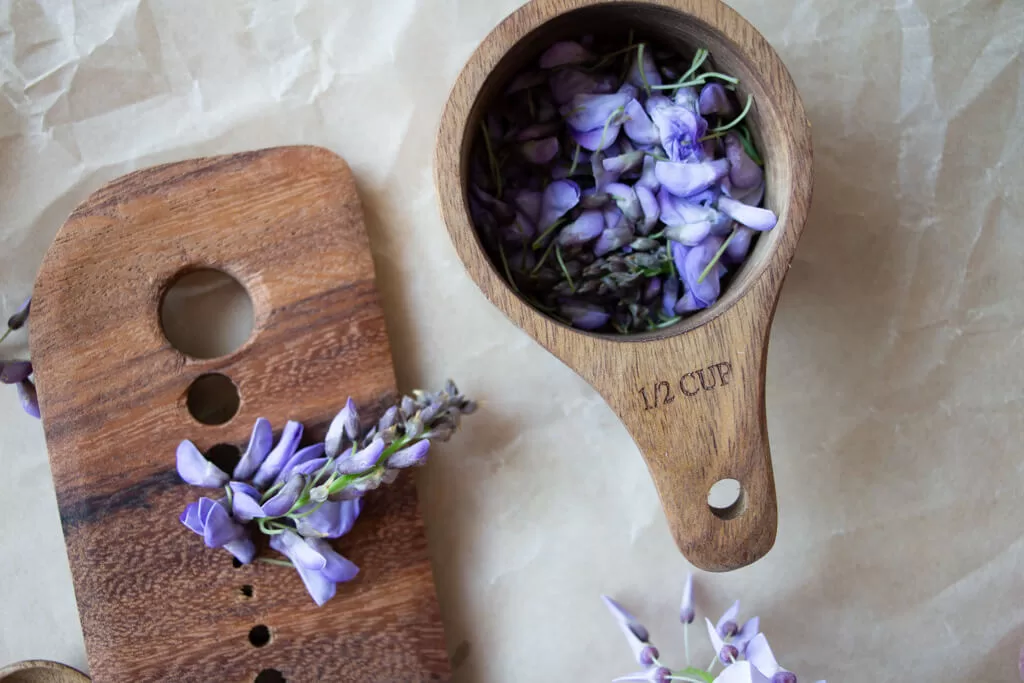
Selling Herbs to Florists
You can grow your own herbs to sell directly to florists to use in their own floral arrangements! As people are looking for more natural home products, they are looking for natural and wild floral arrangements for gifts, weddings, and home décor! This article from Grow with the Flow may spark some ideas on different types of herbs to grow for florists!
Pros of selling herbs to florists:
- Additional Revenue Stream: Selling herbs to florists can be an additional source of revenue for herb growers. Florists often require fresh herbs to use in floral arrangements and other products, creating a market for herb growers. Plus, you don’t need to do anything to the products, just harvest and sell!
- Sustainable Business: Growing herbs for florists can be a sustainable business, as herbs are relatively easy to grow and require minimal resources. Additionally, herbs can be grown year-round, providing a consistent income stream.
- Collaboration Opportunities: Working with florists can lead to collaboration opportunities, as herb growers may be able to create new and unique products with florists. This can help to expand your business and reach a wider customer base.
Cons of selling herbs to florists:
- Seasonal Demand: The demand for herbs from florists may be seasonal, with higher demand during certain times of the year, such as holidays and special occasions. This can make it challenging for herb growers to plan and manage their production.
- Quality Control: Ensuring the quality of herbs sold to florists is crucial, as it can impact your reputation as a seller. It can be challenging to maintain consistency in the quality of herbs due to variations in sourcing, storage, and processing.
- Competition: There may be competition from other herb growers and suppliers in the market. It can be challenging to differentiate yourself from other sellers and establish a loyal customer base.
How to Get Started Selling Your Herbs to Florists:
- Identify the herbs that florists are most likely to buy: Florists use a variety of herbs for their arrangements, including lavender, rosemary, sage, and thyme. Research local florists to find out what herbs they use the most.
- Determine the quantity you want to sell: You need to determine how much you can realistically grow and sell. Keep in mind that herbs have a short shelf life and will need to be sold quickly. Start small and expand as demand grows.
- Decide on your pricing: Research what other local herb sellers are charging and price your herbs accordingly. Be sure to factor in the cost of packaging and transportation.
- Develop relationships with florists: Visit local florists and introduce yourself. Offer to provide samples of your herbs and ask for their feedback. This will help you build relationships and establish a customer base.
- Consider packaging and transportation: You’ll need to package your herbs in a way that will keep them fresh during transportation. You may also want to invest in a cooler to keep your herbs at the optimal temperature.
- Be reliable and consistent: Florists depend on fresh herbs for their arrangements, so it’s important to be reliable and consistent in your delivery. Make sure you deliver on time and provide high-quality, fresh herbs every time.
- Keep up with demand: As your business grows, you may need to increase your production to keep up with demand. Consider expanding your garden or partnering with other herb growers to meet the needs of your customers.
Selling herbs to florists can be a great way to earn extra income while doing something you love. With a little research and planning, you can establish a successful herb-selling business to florists.

Selling Culinary Herb and Spice Mixes
Selling herb and spice mixes is a fun way to sell an easy-to-make value-added product. Making unique and interesting blends will intrigue customers. Even though these are fairly easy-to-make at home, many people still love them, and there is a much wider audience than other herbal products.
Pros of selling culinary herb and spice mixes:
- High Demand: There is a high demand for culinary herb and spice mixes, as consumers look for ways to enhance the flavors of their meals. The market for these mixes is large and growing, providing ample opportunities for sellers.
- High-Profit Margin: Culinary herb and spice mixes can be sold at a higher price than individual herbs and spices, providing a better profit margin. Additionally, they have a longer shelf life than fresh produce and can be stored for a long time, allowing you to stock up and sell in bulk.
- Customization Options: You can create a unique product by experimenting with different herb and spice blends, allowing you to differentiate yourself from other sellers. You can also offer customized blends to meet the specific needs and preferences of your customers.
Cons of selling culinary herb and spice mixes:
- Competition: There may be competition from other sellers offering similar products, making it challenging to differentiate yourself from others and establish a loyal customer base.
- Quality Control: Ensuring the quality of your culinary herb and spice mixes is crucial, as it can impact your reputation as a seller. It can be challenging to maintain consistency in the quality of herb and spice mixes due to variations in sourcing, storage, and processing.
- Regulatory Requirements: The sale of culinary herb and spice mixes is regulated by various bodies, such as the FDA and USDA, making it necessary to comply with various rules and regulations. As a seller, you may need to obtain licenses, permits, and certifications to sell herb and spice mixes legally.
How to Get Started with Your Herbal Spice Blend Business:
- Choose your herbs and spices: First, decide which herbs and spices you want to use in your mixes. You could use a combination of common herbs and spices, such as garlic, rosemary, thyme, and oregano, or you could create unique blends that are specific to certain types of cuisine.
- Develop recipes: Once you have selected your herbs and spices, you need to develop recipes for your mixes. Experiment with different combinations until you find ones that you think taste great and will be popular with your customers.
- Test your mixes: It’s important to test your mixes to ensure that they are consistent in flavor and quality. Ask friends and family to try your mixes and provide feedback on taste, texture, and packaging.
- Determine your pricing: You’ll need to determine the cost of your ingredients, packaging, and labor to determine your pricing. Research what other similar products are being sold for in your area and price your mixes accordingly.
- Consider packaging: The packaging of your herb and spice mixes is important for both attracting customers and keeping your products fresh. Label your mixes with the ingredients and any dietary information.
- Develop marketing strategies: To sell your mixes, you’ll need to develop effective marketing strategies. Consider setting up an online store or selling your mixes at local markets or events. Use social media to promote your products and share recipes that use your mixes.
- Ensure quality and consistency: It’s important to ensure that the quality and consistency of your mixes are maintained. Use fresh, high-quality ingredients, and measure each ingredient precisely to ensure consistency.
Creating your own herb and spice mixes to sell can be a fun and rewarding business. With careful planning and attention to detail, you can create unique and delicious blends that will attract customers and keep them coming back for more.

Selling Directly to Chefs
Selling raw herbs directly to chefs is another easy way to sell your herbs as high-end chefs seek out quality fresh and seasonal ingredients.
Pros of selling herbs directly to chefs:
- High-Value Customers: Chefs are high-value customers who require fresh and high-quality herbs to create their dishes. They are often willing to pay a premium for fresh and unique herbs, providing a better profit margin for sellers.
- Repeat Business: Building relationships with chefs can lead to repeat business, as chefs require fresh herbs on a regular basis. This can provide a reliable and consistent income stream for sellers.
- Direct Feedback: Selling herbs directly to chefs provides an opportunity for direct feedback on the quality and taste of herbs. This can help sellers to improve their products and meet the specific needs and preferences of their customers.
Cons of selling herbs directly to chefs:
- Seasonal Demand: The demand for herbs from chefs may be seasonal, with higher demand during certain times of the year. This can make it challenging for sellers to plan and manage their production.
- High Standards: Chefs have high standards for the quality and freshness of their ingredients, making it challenging for sellers to maintain consistency in the quality of herbs. Sellers may need to invest in specialized equipment and processes to ensure the freshness and quality of their products.
- Limited Market: The market for selling herbs directly to chefs may be limited, as it requires access to local restaurants and chefs. It can be challenging to expand your business and reach a wider customer base beyond your local area.
How to Get Started Selling to Chefs:
- Identify the herbs that chefs are most likely to buy. Some of the most commonly used herbs in professional kitchens include basil, parsley, cilantro, thyme, rosemary, and mint. Research local restaurants and caterers to find out what herbs they use the most.
- Decide on the quantity you want to sell. You need to determine how much you can realistically grow and sell. Keep in mind that herbs have a short shelf life and will need to be sold quickly. Start small and expand as demand grows.
- Determine your pricing. Research what other local herb sellers are charging and price your herbs accordingly. Be sure to factor in the cost of packaging and transportation.
- Develop relationships with chefs. Visit local restaurants and introduce yourself to the chefs. Offer to provide samples of your herbs and ask for their feedback. This will help you build relationships and establish a customer base.
- Consider packaging and transportation. You’ll need to package your herbs in a way that will keep them fresh during transportation. You may also want to invest in a cooler to keep your herbs at the optimal temperature.
- Be reliable and consistent. Chefs depend on fresh herbs for their dishes, so it’s important to be reliable and consistent in your delivery. Make sure you deliver on time and provide high-quality, fresh herbs every time.
Selling fresh herbs to chefs from your garden can be a great way to earn extra income utilizing your land. With a little research and planning, you can establish a successful herb-selling business. As word of mouth gets around, you may be selling to all the hottest restaurants in town!

Selling herbs at farmer’s market
Selling herbs at a farmer’s market may seem obvious, but it is a great way to get started selling your herbs, and can be a gateway to get you into other herbal businesses. You will have unique access to talking to the customers and you can directly ask what they want to buy!
Pros of selling herbs at a farmers market:
- Direct Connection with Customers: Selling herbs at a farmers market provides a direct connection between sellers and customers, allowing for personal interactions and relationships. This can lead to customer loyalty and repeat business.
- Low Overhead Costs: Farmers markets have low overhead costs, as sellers do not need to pay for storefront rent, utilities, and other expenses associated with running a physical store. This allows for a better profit margin for sellers.
- Exposure and Marketing: Farmers markets provide exposure and marketing opportunities for sellers, allowing them to showcase their products and attract new customers. Farmers markets are often advertised through local media, websites, and social media, providing additional exposure for sellers.
Cons of selling herbs at a farmers market:
- Weather and Seasonal Challenges: Farmers markets are often seasonal, with fewer markets during the colder months. Additionally, weather conditions can impact attendance and sales at markets, making it challenging for sellers to plan and manage their production and finances.
- Competition: Farmers markets can be competitive, with many other sellers offering similar products. This can make it challenging for sellers to differentiate themselves from others and establish a loyal customer base.
- Limited Sales Hours: Farmers markets have limited sales hours, typically only one or two days per week. This can make it challenging for sellers to generate a consistent and reliable income stream.
How to Get Started Selling Herbs at Farmer’s Markets:
- Research local regulations: Before starting a business selling herbs at a farmers market, it is important to research local regulations and obtain any necessary licenses or permits. This may include obtaining a food handling permit or registering as a vendor with the market.
- Develop a business plan: A business plan can help to clarify your goals, target market, pricing strategy, and marketing approach. It can also help to guide your production and financial planning.
- Choose the right herbs: Consider the demand for different types of herbs in your local market and select herbs that are easy to grow and transport. Focus on offering a variety of unique and high-quality herbs that are not easily found in grocery stores.
- Invest in quality packaging: Packaging is important for attracting customers and protecting the freshness and quality of your herbs. Invest in high-quality, attractive packaging that is easy to transport and store.
- Price competitively: Research the prices of other herb vendors at the farmers market and price your products competitively. Consider the cost of production, packaging, and transportation when setting your prices.
- Build relationships with customers: Building relationships with customers can help to establish a loyal customer base and generate repeat business. Offer samples of your herbs and engage with customers to understand their needs and preferences.
- Market your business: Utilize social media, local media outlets, and other marketing channels to promote your business and attract new customers. Consider offering discounts or promotions for first-time customers or referrals.
I really think that starting out by selling raw herbs at a farmer’s market is an incredible first step for your herbal business to give you first hand experience in surveying your local customer base and finding out what other businesses are in demand.

Selling Herbs through a CSA (Community-supported agriculture)
Selling herbs through a local CSA is awesome in that customer’s are often locked in to buy from you all season long. By joining with other farmer’s, you can also build strong relationships in your local community.
Pros of selling herbs through a CSA:
- Steady Income: Selling herbs through a CSA provides a steady and predictable income for sellers. Customers pay in advance for a share of the crop, allowing sellers to plan and manage their production and finances.
- Community Support: A CSA provides a direct connection between sellers and consumers, allowing for a sense of community and support. Customers are often willing to support local and sustainable agriculture, providing a loyal customer base for sellers.
- Reduced Waste: A CSA can help to reduce waste by allowing sellers to grow only the amount of herbs needed by customers. This can help to minimize food waste and ensure that herbs are consumed at their freshest and most flavorful.
Cons of selling herbs through a CSA:
- Production Challenges: The production of herbs can be challenging, as it requires specific growing conditions and techniques. This can be especially challenging for sellers who are new to farming or are located in areas with unfavorable growing conditions.
- Customer Expectations: Customers may have high expectations for the quality and quantity of herbs provided through a CSA. Sellers may need to invest in specialized equipment and processes to ensure the freshness and quality of their products.
- Limited Market: The market for selling herbs through a CSA may be limited, as it requires access to local consumers who are willing to pay for a share of the crop. It can be challenging to expand your business and reach a wider customer base beyond your local area.
How to Get Started Selling Herbs through a CSA:
- Identify a local CSA program: Research local CSA programs in your area to find one that aligns with your values and goals. Contact the program to learn about their requirements for vendors.
- Determine your product offerings: Decide which herbs you want to offer and in what quantities. Consider offering a variety of herbs to appeal to a wider range of customers.
- Determine your pricing: Factor in the cost of materials, time, and labor to determine your pricing. Research what other similar products are being sold for in your area and price your products accordingly.
- Establish a brand: Develop a brand that reflects your values and appeals to your target market. Choose a name, logo, and packaging that stands out and reflects the natural and organic nature of your products.
- Comply with regulations: Make sure you comply with all regulations for selling herbs through a CSA program. This may include obtaining necessary permits and complying with labeling requirements.
- Package your products: Package your herbs in a way that is easy to transport and store. Consider offering information about the health benefits and uses of each herb to help customers better understand and appreciate your products.
- Promote your products: Use social media and other marketing strategies to promote your products and let customers know where and when they can purchase your herbs through the CSA program.
Selling your herbs through a local CSA program can be a great way to build relationships with your customers and support your local community. Once you have this loyal customer base, you can always add other initiatives that these customer’s might come to you for.

Teaching About Herbs
Teaching others about herbs is a great way to share your knowledge and enthusiasm for herbalism. Whether you are an experienced herbalist or just starting out, teaching can be an enjoyable and rewarding endeavor. Teaching does not have to involve any formal practice such as clinical work; you can teach in several different ways, whether it’s giving lectures, leading workshops, providing wellness coaching, creating online programs or even writing a book.
Most experienced herbalists also include teaching aspects in their other business endeavors. For example, if you sell herbs at retail business or in an apothecary then you can provide educational material on how to use the herbs properly and what benefits they offer when used correctly. By having this type of customer education component built in, your customers will be more likely to trust the products that they buy from you. They will also be more likely to come back for more purchases if they find that the information provided has been helpful in expanding their herb knowledge and mastery of its use.
Pros of making money by teaching about herbs:
- Sharing Knowledge: Teaching about herbs allows you to share your knowledge and passion with others. You can help to educate others on the benefits of herbs and how to use them in their daily lives.
- Flexibility: Teaching about herbs can be done both online and in person, providing flexibility in terms of location and schedule. This allows you to reach a wider audience and potentially earn a passive income through online courses and workshops.
- Personal Growth: Teaching about herbs can also help you to grow personally and professionally. By researching and developing courses and workshops, you can deepen your knowledge and skills in the field of herbs.
Cons of making money by teaching about herbs:
- Competition: There may be competition from other herb teachers and suppliers in the market (especially online), making it challenging to differentiate yourself from others and establish a loyal customer base.
- Time-Consuming: Developing and delivering courses and workshops can be time-consuming, requiring significant time and effort to research and prepare materials.
- Financial Risk: The income from teaching about herbs may not be consistent or reliable, making it challenging to rely solely on teaching for income. It can be difficult to establish a steady stream of clients or students, leading to financial uncertainty.
How to Get Started With Your Herbal Teaching Business:
- Determine your target audience: Who do you want to teach about herbs? Consider if you want to teach hobbyists, gardeners, chefs, or health enthusiasts.
- Develop your curriculum: Once you know your target audience, you need to develop a curriculum that meets their needs. This could include topics such as the history of herbs, herbal remedies, culinary herbs, or herb gardening.
- Choose your teaching method: There are various ways to teach about herbs, including in-person classes, online courses, and workshops. Consider what works best for your target audience and what format you are most comfortable with.
- Determine your pricing: You’ll need to determine the cost of your materials, time, and labor to determine your pricing. Research what other similar classes are being sold for in your area and price your classes accordingly. Obviously, the more formal herbal training you have, the more you can charge.
- Develop marketing strategies: To attract students, you’ll need to develop effective marketing strategies. Consider setting up a website, using social media to promote your classes, or partnering with local businesses.
- Build your reputation: Build your reputation as an expert in your field by sharing your knowledge on social media, writing articles or blog posts, and networking with others in the herbal community.
- Provide a great experience: Once you start teaching, it’s important to provide a great experience for your students. Be organized, engaging, and knowledgeable. Ask for feedback and use it to improve your classes.
Teaching about herbs is really the only passive herb business idea. Once you create an online course or other digital product, you can make money from that product time and time again.

Herb Business FAQs
In conclusion, becoming an herbal entrepreneur can be a rewarding and lucrative venture for those with a passion for natural remedies and holistic health. With the growing demand for herbal products and services, there are countless opportunities to create a successful business in this field.
By identifying your interests, assessing your skills, and researching your market, you can determine which type of herbal business is right for you. Whether you decide to sell herbal products, offer consulting services, grow and sell herbs, or teach herbal education, starting an herbal business can be a fulfilling way to share your knowledge and expertise with others while creating a sustainable income. As an herbal entrepreneur, you have the freedom and flexibility to chart your own course and create a business that aligns with your values and goals.
Get started now with this list of the Most Expensive Herbs you can Grow at Home!
What type of business do you want to start? Tell me in the comments! Do you have any other herb business ideas not mentioned above? I love online education as my first endeavor, as I don’t have a lot of room to grow in my current home.
Pin These Herb Business Ideas for Later!

I have several resources to help inspire your herbal business:

About the Author:
I’m Brittany, totally modern and mainstream turned crunchy mama!
Read more here about how I went from a totally incompetent cook and hyper-consumer to striving to live a more meaningful life from scratch.
I can’t wait to share my modern homesteading journey with you and I hope I inspire you to join along!

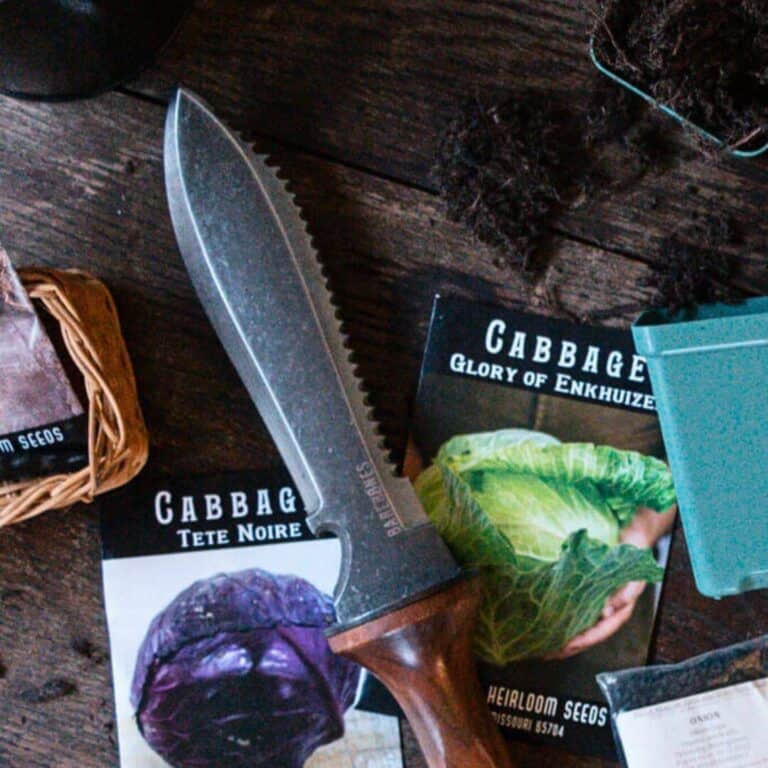


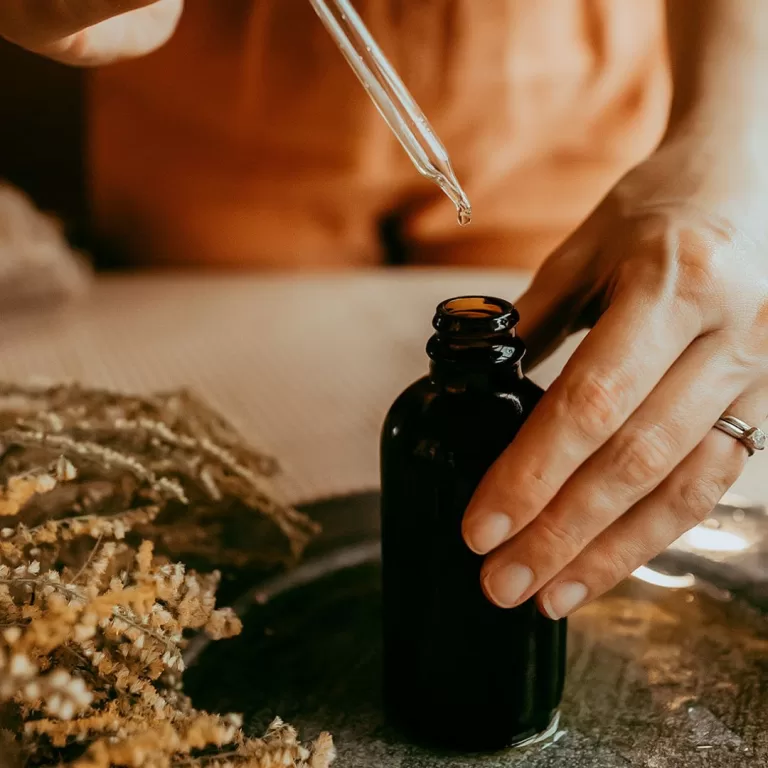

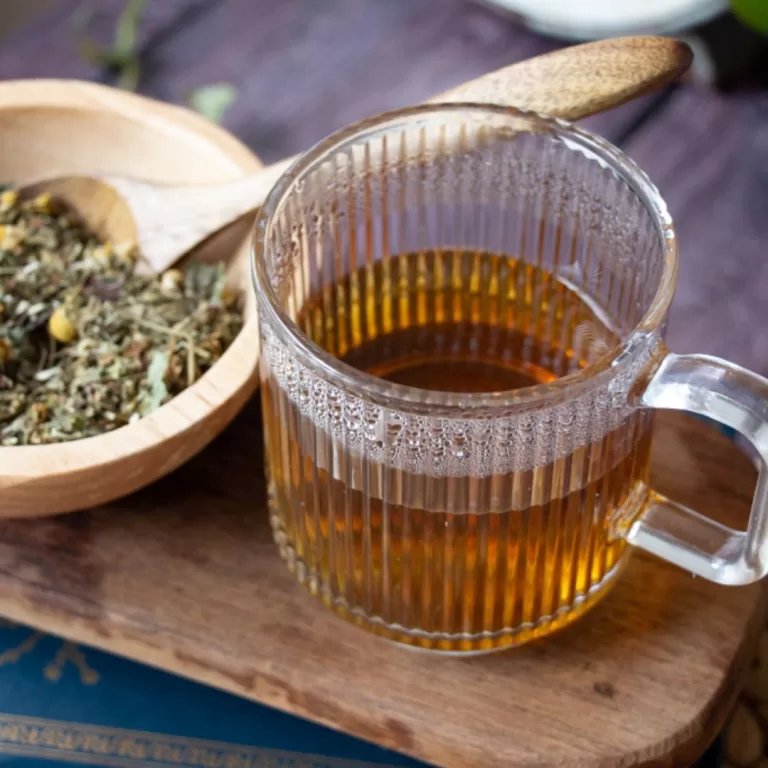
Wow, I never thought of all these ideas for an herb business! This is great! I grew up drinking medicinal teas (being half-Asian) and am very familiar with the health benefits. But, I love them for beauty and skincare products and for culinary uses. Thanks for all this very useful and thorough info!????????????♀️
That’s so cool! I love learning the herbal traditions of different cultures (I SO wish it was a tradition here!).
Wow, to have your knowledge of herbs is a dream! This is awesome! ????
Always learning! I am still SO new! Just started this journey and I think it is so cool how many avenues you can take it!
You are speaking my language here! Great ideas, thank you for sharing !
Thank you for sharing so many great ways to turn a love of herbs into a small business. Who knew there were so many options.